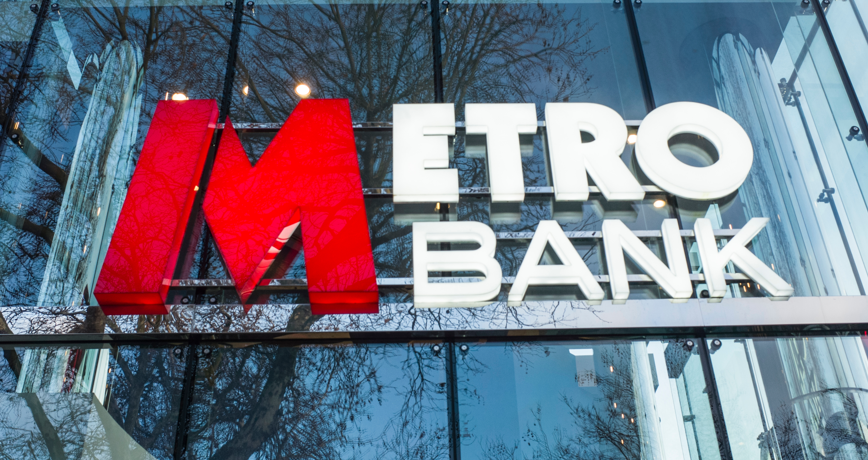The UK challenger banks are navigating a new chapter marked by the resurgence of interest rates. This shift has ushered in new complexities for financial institutions and unleashed a wave of uncertainty.
Amid this transition, mid-tier banks like Metro Bank have found themselves at a crossroads, facing questions about regulatory hurdles, capital structures, and business models.
Pre-dating the digital banking explosion, in 2010 Metro Bank became the first high street bank to appear on the UK’s financial landscape in over 150 years. Today it has 76 branches and ambitions to expand with 11 more in the north of England by 2025, its journey is indeed one of ambition and audacity.
However, recent news events have cast a shadow over Metro’s narrative. A 30% share slump in mid-October prompted by revelations of the lender’s urgent quest for funding has resulted in the bank’s market cap plummeting to a meagre £72 million.
It was a stark reminder of how the most innovative and audacious endeavours can be met with the cold reality of financial turmoil.
Fortunately, investor Colombian billionaire Jaime Gilinski has stepped in at a critical juncture. An infusion of £325 million through a capital raise and a debt refinancing of £600 million breathed new life into Metro Bank. However, this transaction also marked a shift in majority ownership, with Gilinski taking the reins.
How well do you really know your competitors?
Access the most comprehensive Company Profiles on the market, powered by GlobalData. Save hours of research. Gain competitive edge.

Thank you!
Your download email will arrive shortly
Not ready to buy yet? Download a free sample
We are confident about the unique quality of our Company Profiles. However, we want you to make the most beneficial decision for your business, so we offer a free sample that you can download by submitting the below form
By GlobalDataBut the plot thickens. Even though Metro Bank has recently secured funding, it hasn't addressed the core challenge connected to its traditional physical branch business model. As traditional banks continue to close physical branches in favour of going fully digital, and competition in the purely digital banking sector intensifies, Gilinski recently told the Financial Times of his preference for maintaining a physical presence on high streets. This perspective stands in contrast to the current trend of embracing digital banking.
However, the complexity of Metro Bank's journey extends further. Regulatory challenges loom large. Goodbody analyst John Cronin argued that Metro's predicament reflects a broader issue – the overregulation of challenger banks. He queried the wisdom of burdening small banks with complex regulatory capital structures, asking: "What's wrong with just ordinary equity and deposits?"
This query brings forth a pertinent point. The regulatory environment has been a double-edged sword for challenger banks, meant to ensure stability but occasionally introducing complexities that overshadow their operations.
The predicament Metro Bank faces is also a commentary on the regulatory landscape for mid-tier banks - many of which are big players in the asset finance space, in 2022 alone the UK banking sector collectively contributed £34 billion in asset finance to businesses, according to the Finance & Leasing Association.
Amid regulatory challenges, Metro Bank's experiences reflect the broader landscape for mid-tier banks in the UK. As interest rates rise and digitalisation sweeps the industry, these banks face complex regulations, capital allocation, and shifting customer preferences. Their ability to navigate these challenges will shape the future of UK mid-tier banking.
Metro Bank operating at the edges of its capital requirements
UK SMEs unable to access financing as economic uncertainty bites: Praetura










Related Company Profiles
Metro Bank Holdings PLC